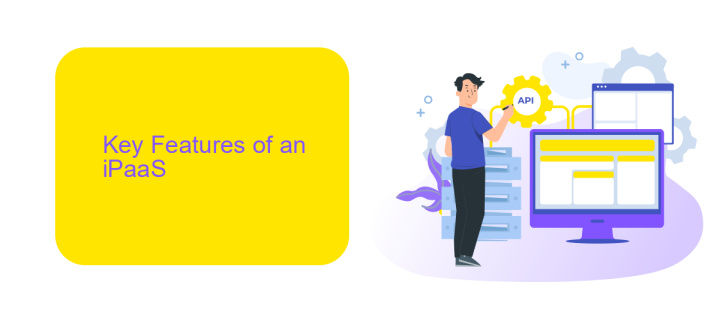iPaaS Overview
Integration Platform as a Service (iPaaS) is a cloud-based solution designed to streamline and simplify the integration of various applications and data sources within an organization. By offering a unified platform, iPaaS enables seamless data flow, improved efficiency, and enhanced connectivity, making it an essential tool for businesses looking to optimize their IT infrastructure and drive digital transformation.
Definition and Benefits
Integration Platform as a Service (iPaaS) is a cloud-based solution that simplifies the integration of various applications and services across different environments. By offering a unified platform, iPaaS enables businesses to streamline their workflows and improve operational efficiency.
- Seamless integration of disparate systems
- Enhanced data synchronization
- Scalability to accommodate growing business needs
- Reduced IT overhead and maintenance costs
- Improved data accuracy and consistency
One of the key benefits of iPaaS is its ability to facilitate the integration process without extensive coding or technical expertise. Services like ApiX-Drive offer user-friendly interfaces and pre-built connectors, allowing businesses to quickly set up integrations and automate workflows. This not only saves time but also ensures that data flows smoothly between different systems, enhancing overall productivity and decision-making capabilities.
Key Features of an iPaaS

An iPaaS (Integration Platform as a Service) offers a range of key features designed to streamline and optimize the integration process. One of the primary features is the ability to connect disparate systems and applications seamlessly, enabling smooth data flow across various platforms. This includes pre-built connectors for popular applications and services, which reduce the need for custom coding. Additionally, iPaaS solutions often come with user-friendly interfaces that allow even non-technical users to set up and manage integrations through drag-and-drop tools and visual workflow designers.
Another significant feature is real-time data processing and synchronization, ensuring that data is always up-to-date across all connected systems. iPaaS platforms like ApiX-Drive provide robust monitoring and error-handling capabilities, allowing users to quickly identify and resolve issues. They also support scalability, accommodating growing data volumes and increasing numbers of integrations without compromising performance. Security features, such as data encryption and compliance with industry standards, ensure that sensitive information is protected throughout the integration process. These features collectively make iPaaS an essential tool for modern businesses looking to enhance their operational efficiency and agility.
Use Cases for Integration

Integration Platform as a Service (iPaaS) solutions offer a wide range of use cases for businesses looking to streamline their operations and improve data flow between disparate systems. These platforms enable seamless connectivity and data integration across various applications, databases, and services, which is crucial for maintaining operational efficiency and data accuracy.
- Automated Data Synchronization: iPaaS can automatically sync data between CRM systems, marketing platforms, and sales tools, ensuring that all departments have access to up-to-date information.
- Real-Time Analytics: By integrating analytics tools with operational databases, businesses can gain real-time insights and make data-driven decisions more effectively.
- Streamlined E-commerce Operations: iPaaS can connect e-commerce platforms with inventory management and accounting systems, automating order processing and inventory updates.
- Enhanced Customer Experience: Integration of customer service platforms with CRM systems allows for a unified view of customer interactions, improving service quality and response times.
- API Management: Tools like ApiX-Drive facilitate the creation, management, and monitoring of APIs, enabling businesses to integrate various services without extensive coding.
These use cases demonstrate the versatility and importance of iPaaS solutions in modern business environments. By leveraging platforms like ApiX-Drive, companies can significantly reduce the complexity of their integration processes, leading to more efficient operations and better overall performance.
Challenges and Considerations

Implementing an iPaaS solution can present several challenges and considerations for businesses. One of the primary concerns is data security and compliance, as sensitive information is often transferred between various applications and systems. Ensuring that the iPaaS provider adheres to industry standards and regulations is crucial.
Another significant challenge is the complexity of integration. Businesses must carefully evaluate their existing IT infrastructure and determine the compatibility of the iPaaS solution with their current systems. This often requires a thorough understanding of the technical requirements and potential limitations.
- Data Security and Compliance
- Integration Complexity
- Scalability and Performance
- Cost Management
To address these challenges, leveraging services like ApiX-Drive can be beneficial. ApiX-Drive simplifies the integration process by offering a user-friendly platform that connects various applications without the need for extensive coding. This can help businesses streamline their operations and reduce the time and effort required to manage integrations.
Future of iPaaS
The future of iPaaS (Integration Platform as a Service) promises to be transformative as businesses increasingly rely on cloud-based solutions to streamline operations. With the rise of artificial intelligence and machine learning, iPaaS platforms are expected to become more intelligent, automating complex integration tasks and providing predictive analytics to optimize workflows. This evolution will enable organizations to achieve greater agility and efficiency, allowing them to quickly adapt to changing market demands and technological advancements.
Moreover, the integration landscape is likely to see enhanced connectivity with a broader range of applications and services. Tools like ApiX-Drive are at the forefront of this movement, offering user-friendly interfaces and powerful features to simplify the integration process. By leveraging such platforms, businesses can effortlessly connect disparate systems, ensuring seamless data flow and real-time synchronization. As iPaaS continues to evolve, it will play a critical role in driving digital transformation and fostering innovation across industries.


FAQ
What is iPaaS?
How does iPaaS work?
What are the benefits of using iPaaS?
Can iPaaS be used by non-technical users?
What types of integrations can be achieved with iPaaS?
Strive to take your business to the next level, achieve your goals faster and more efficiently? Apix-Drive is your reliable assistant for these tasks. An online service and application connector will help you automate key business processes and get rid of the routine. You and your employees will free up time for important core tasks. Try Apix-Drive features for free to see the effectiveness of the online connector for yourself.

